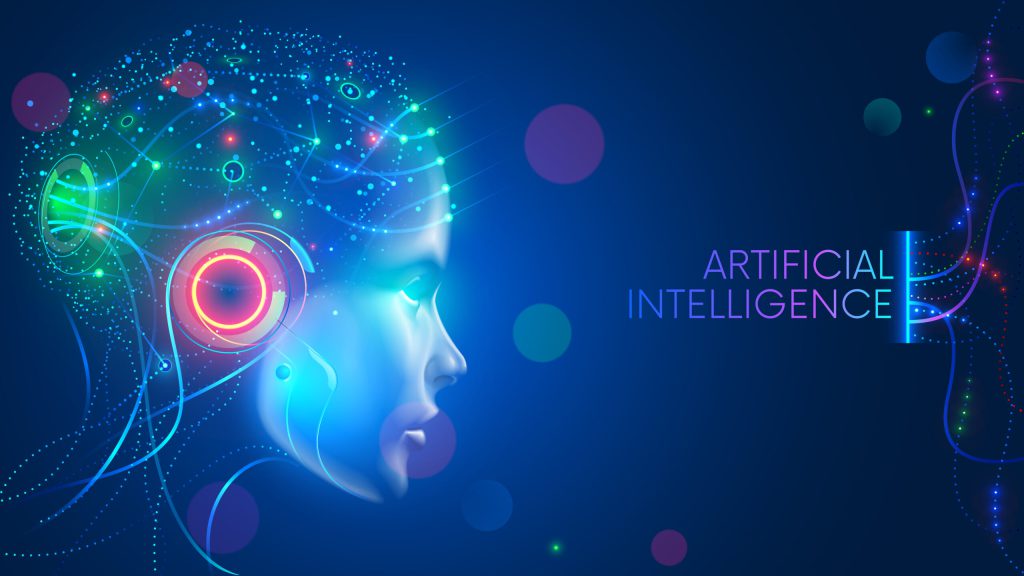AI, or artificial intelligence, is a branch of computer science that focuses on developing computer systems and programs that can perform tasks that normally require human intelligence, such as understanding natural language, recognizing patterns, and making decisions.
The history of AI goes back to the mid-20th century, when researchers first started exploring the idea of creating machines that could mimic human intelligence. In 1956, a group of computer scientists and mathematicians organized the Dartmouth Conference, which is widely considered to be the birth of AI as a field of study.
In the decades that followed, AI researchers made significant progress in developing machine learning algorithms, natural language processing systems, and other AI technologies. However, progress was slow due to limitations in computing power and data availability. In the 1990s and 2000s, AI experienced a resurgence of interest, driven by breakthroughs in machine learning and the availability of vast amounts of data.
Today, AI is a rapidly advancing field that is transforming many industries, from healthcare to finance to transportation. With the rise of deep learning, neural networks, and other advanced AI technologies, there is growing excitement and concern about the potential impact of AI on society and the economy.
The concept of artificial intelligence, or machines that can exhibit human-like intelligence, can be traced back to the ancient Greeks and their myths of mechanical men, such as Talos and Hephaestus. However, the development of modern AI as a field of study began in the mid-20th century, with the work of pioneers such as Alan Turing, John McCarthy, Marvin Minsky, and Claude Shannon.
One of the earliest examples of an AI system was the Logic Theorist, developed by Allen Newell and J.C. Shaw in 1956. The Logic Theorist was a program that could prove mathematical theorems by using symbolic logic. Another early example was the General Problem Solver, developed by Newell and Herbert A. Simon in 1957. The General Problem Solver was a program that could solve a wide range of problems by representing them in a symbolic form and using heuristics to search for solutions.
In the following years, AI researchers made significant progress in developing other early AI systems, including the natural language processing system SHRDLU, developed by Terry Winograd in 1972, and the expert system MYCIN, developed by Edward Shortliffe in 1976, which could diagnose infectious diseases.
While these early AI systems were relatively primitive compared to modern AI technologies, they laid the foundation for the development of more advanced machine learning algorithms, neural networks, and other AI technologies that we use today.
The future of AI is a topic of much debate and speculation, as it has the potential to revolutionize many aspects of our lives, from healthcare and education to transportation and entertainment. Here are some of the key areas where AI is likely to have a significant impact in the future:
- Automation: AI has the potential to automate many jobs that are currently performed by humans, from driving and manufacturing to data entry and customer service.
- Healthcare: AI can help doctors and researchers analyze medical data more efficiently and develop more effective treatments for diseases.
- Education: AI can help personalize learning experiences for students, providing individualized instruction and feedback.
- Transportation: AI can help optimize traffic flows, reduce accidents, and enable autonomous vehicles.
- Environmental sustainability: AI can help us address environmental challenges such as climate change by optimizing energy use and reducing waste.
- Creativity: AI can be used to create new forms of art, music, and other creative works.
However, there are also concerns about the potential negative impacts of AI, such as job displacement, loss of privacy, and the risk of unintended consequences if AI systems are not designed and deployed responsibly. To ensure a positive future for AI, it will be important to address these concerns and ensure that AI technologies are developed and used in ways that benefit society as a whole.
If you’re interested in doing a project on AI, there are many possible directions you could take. Here are a few ideas to get you started:
- Natural Language Processing: Develop a natural language processing (NLP) system that can understand and respond to human language. You could focus on a specific task, such as sentiment analysis or chatbot development.
- Image and Video Recognition: Develop an AI system that can recognize objects, faces, or actions in images or videos. You could use deep learning techniques such as convolutional neural networks (CNNs) or recurrent neural networks (RNNs).
- Predictive Analytics: Develop an AI system that can analyze data and make predictions about future trends or events. You could use machine learning algorithms such as linear regression, decision trees, or random forests.
- Robotics: Develop an AI system that can control a robot to perform a specific task, such as picking and placing objects. You could use reinforcement learning techniques to train the robot to learn from its mistakes and improve over time.
- Game AI: Develop an AI system that can play a game, such as chess, Go, or video games. You could use techniques such as Monte Carlo tree search or deep reinforcement learning.
- AI Ethics: Develop a project that explores the ethical implications of AI, such as bias in AI systems, the impact of AI on jobs and society, or the use of AI for surveillance or control.
These are just a few ideas to get you started. Depending on your interests and skills, there are many other directions you could take your AI project.

